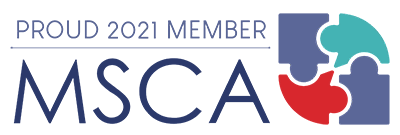Montessori Glossary
Montessori Education is based on Dr Maria Montessori’s approach to learning and development, which supports the full development of a person through multi-disciplinary learning. Since this approach follows the natural development trajectory of each unique individual, a ‘prepared environment’ is needed to meet the physical and psychological needs of the child at each stage of their development. With Montessori education, learning does not only apply inside the classroom but extends outside into the real world. To help parents, guardians and children understand and appreciate this approach to learning; we have prepared this Montessori Glossary.
Rockingham Montessori School embodies Montessori Education and these are the principles, values and practices that we give importance to:
Absorbent Mind – this is a crucial period (0 to age 6) in one’s life that makes learning easier and thus Montessori education takes this period to develop and shape a person through proper learning.
Children’s House – learning through playing is one of the most important principles in Montessori education. The Children’s House is usually the classroom for children ages two and a half or 3 to 6 years.
Choice – students are given the choice of what they can learn about and what materials inside the classroom they can use to facilitate learning and enhance their skills.
Control of error – the classroom prepares the child to understand that it’s okay to be wrong and that mistakes are not bad, so long as errors are identified and corrected. By assisting students with their thought process, the children are given the opportunity to recognise their mistakes and learn how to arrive at the truth.
Coordination – the coordination of the mind with the body is very important especially when growing motor skills. In Montessori Education, the physical classroom is designed to coordinate every movement of the child and their environment.
Freedom within Limitation – the children have the freedom to decide the pace of their learning, including the scope and the length, provided that what they do will fulfil the fundamental requirements of learning and not affect students negatively.
Imagination – goes hand in hand with consciousness. Imagination enables children to learn beyond what is said and experienced in the classroom. This will enable children to enhance not only their thinking skills but also help in developing new skills in life.
Independence – facilitators give the children the choice and the freedom to learn on their own by allowing them to ask questions, participate in activities and discover the things inside the Montessori Classroom.
Indirect preparation – teachers set up the classroom in a way that children will be able to participate in individual and group activities that they can learn from and gain experience. This also includes learning the fundamentals and acquiring basic skills for more advanced learning/teachings.
Life-long Learning – starts not only in the classroom but extends outside – in the family and the community. Montessori education embodies in the children the love of learning and teaches them how to learn so that they can continue to grow as human beings beyond the classroom and into adulthood.
Materials – the materials in a prepared environment are the ones which can develop and enhance the thoughts and skills of the student depending on what stage they are at the learning process.
Mixed Age Range – in a classroom practicing Montessori Education, learning is based on the child’s individual pace and not strictly about age. This makes a Montessori Classroom filled with children from different ages and all with the unique experiences that each one can share and learn with another.
Movement – the students are free and encouraged to move around the classroom, work with other people and explore the materials so long as they don’t distract others from their own pace of learning.
Order – this involves not only the physical order of the classroom but also following the appropriate steps or order that can allow children to grow and develop inside the classroom and in the real world.
Respect – is one of the most important values that facilitators demonstrate so that the children can learn how to respect one another and their environment, especially since Montessori Education is not only self-learning but learning alongside and working with a community.
Role of the adult – in a Montessori classroom, adults are not traditional teachers that they discuss topics collectively and tell the students all the answers. In Montessori Education, adults are facilitators that teach or assist children how to learn, think and question properly as well as how to work individually and as part of a community.
Self-Discipline – is one of the principles that Montessori education tries to embody into children. The Montessori classroom requires self-discipline since the children have the freedom to learn on their own but guided by and set within the curriculum.


Infant & Toddler
Program
1 - 3 Years
Our Infant Toddler Program (Playgroup) is the ideal way for your family to experience the Montessori philosophy and practice, while providing toddlers with a gentle transition to the Children’s House.

Children’s
House
3 - 6 Years
Rockingham Montessori School has three Children’s House classrooms, named Dolphins, Penguins and Seahorse, reflecting our seaside location. Each is led by a dedicated and highly-trained Montessori teacher.

Primary
Program
6 - 12 Years
Rockingham Montessori School has three Lower-Primary classrooms: Jelly Fish, Starfish and Sea Lions, continuing our ocean theme. Teachers are Montessori-trained and work with the help of an education assistant.

Adolescent
Program
12 -18 Years
In Montessori’s third plane of development, from twelve to eighteen years old, the adolescent has a ‘humanistic mind’ eager to understand humanity and the contribution they can make to society.

